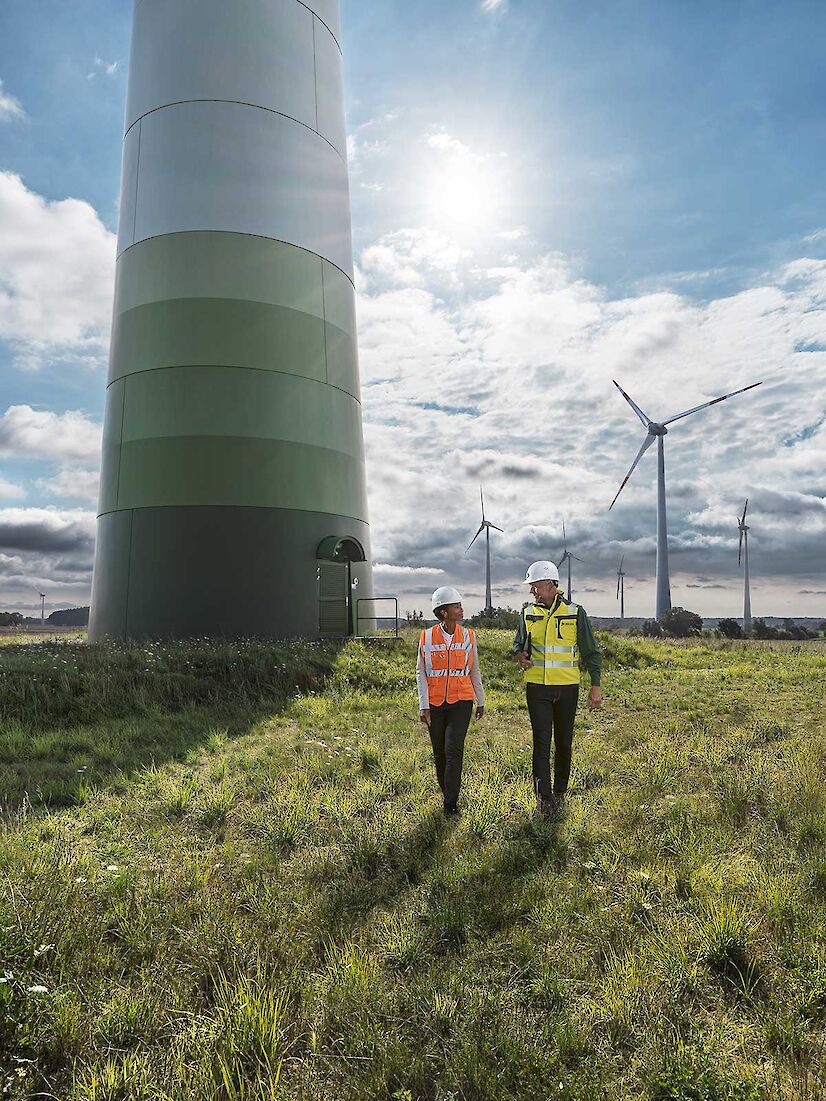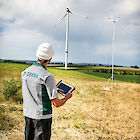Leading the way
for the future
Corporate responsibility now goes far beyond the mere consideration of economic results. More than ever, it is important to focus on the effects of the respective actions on society and the environment in order to create the basis for sustainable development. DEKRA has long assumed this responsibility worldwide - both internally through a variety of measures and externally through extensive expert services. As a global partner for a safe, secure and sustainable world, DEKRA makes a significant contribution to sustainable development at all levels with its wide range of consulting, testing, certification and audit services.
From 2025, the expert organization will further strengthen this approach with the holistic DEKRA Climate Impact program. Holistic not least because the individual building blocks are by no means isolated measures, but are closely interlinked and build on each other. At the same time, DEKRA's top-down approach ensures that company management, executives and employees are equally involved in the measures.

A central component of the DEKRA Climate Impact program is the implementation of an internal carbon price. As an incentive, so to speak, to reduce one's own carbon emissions in a targeted manner and thus make an active contribution to climate protection. By evaluating and pricing carbon emissions, business decisions are scrutinized even more closely for their impact on the climate. This, in turn, is the basis for DEKRA's compliance with its 1.5-degree emissions reduction path validated by the Science Based Targets Initiative (SBTi). The SBTi supports companies in developing science-based emission reduction targets that are compatible with limiting global warming to 1.5 degrees above pre-industrial levels.


















































